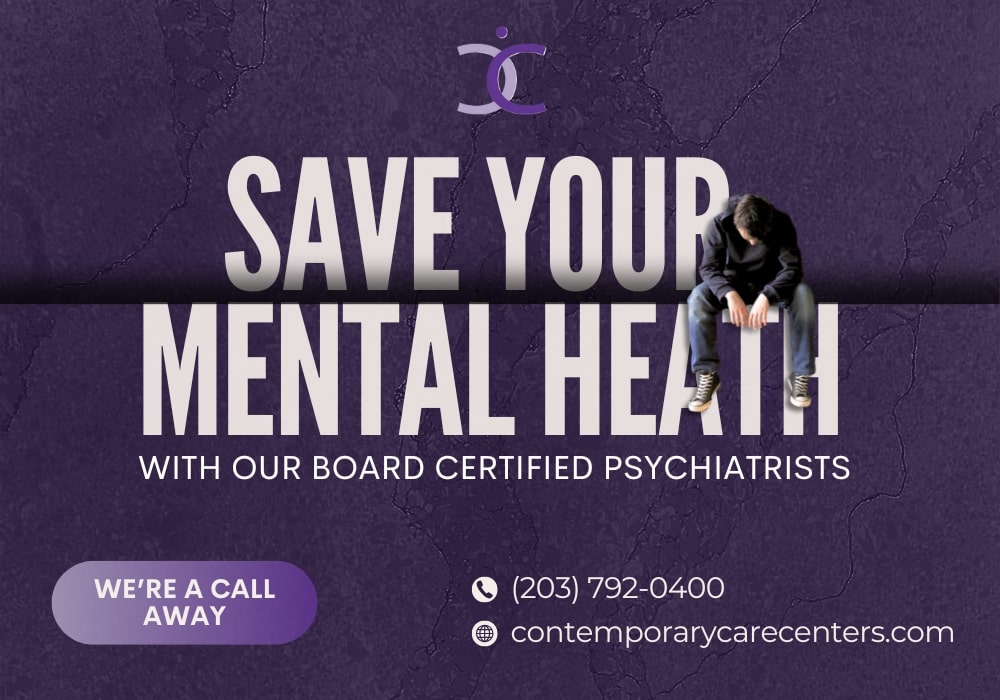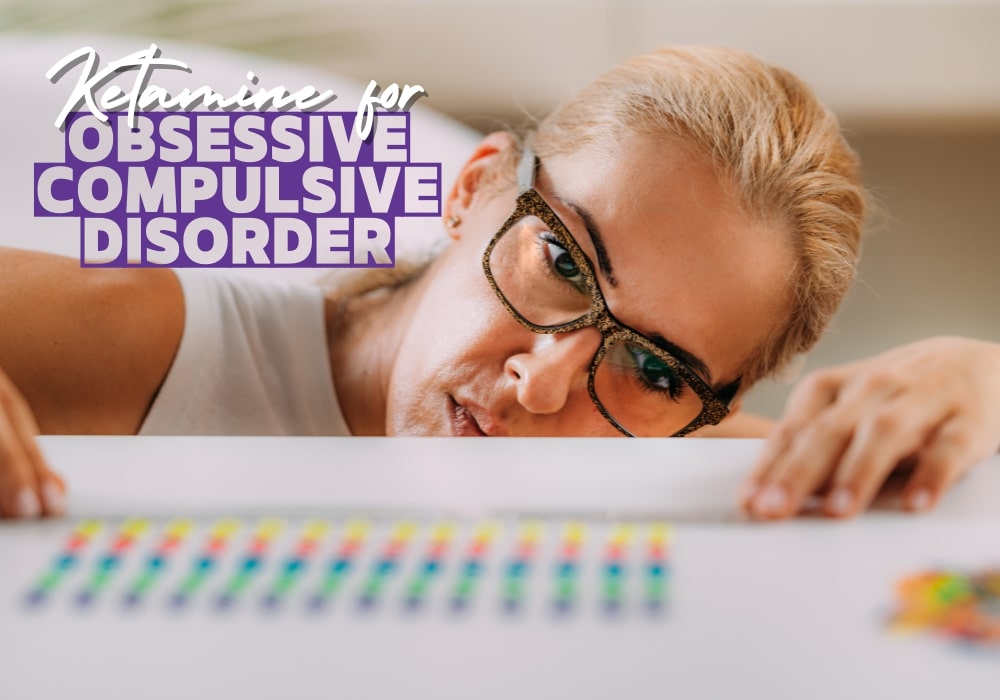Discover how ketamine is transforming OCD treatment, offering hope and relief where traditional methods fall short.
Obsessive-Compulsive Disorder (OCD) is a chronic mental health condition that affects thousands of people worldwide. Characterized by intrusive thoughts and repetitive behaviors, it can lead to severe disruption in daily life. While CBT and SSRIs help many, some patients with OCD struggle to find effective relief from these traditional treatments.
This blog explores how ketamine for OCD effectively manages symptoms, offering hope for those with treatment-resistant OCD.
What Is OCD and How Does It Affect Daily Life?
OCD causes intrusive thoughts and repetitive behaviors, disrupting daily life and it leads to significant emotional distress and time loss.
Obsessive-Compulsive Disorder is characterized by fixed, unwanted ideas (obsessions) and activities that the individuals engage in to overcome these ideas (compulsions). Individuals with OCD may repeatedly wash hands, check locks, or organize items to alleviate distress from obsessive thoughts.
These compulsive behaviors can be time-consuming and disruptive, severely affecting both personal and professional life.
Traditional OCD Treatment Options
The most common today treatments of OCD are CBT and medication. CBT, specifically exposure and response prevention (ERP), helps patients confront their obsessive thoughts and resist the urge to perform compulsive actions. Meanwhile, OCD medications, including selective serotonin reuptake inhibitors (SSRIs), work by increasing serotonin levels in the brain.
However, despite their effectiveness for many, these traditional treatments don’t work for everyone. Patients with severe or treatment-resistant OCD often find limited relief, making ketamine therapy for OCD a promising alternative.
Symptoms Of OCD
- Intrusive Thoughts (Obsessions): Unwanted and distressing thoughts that repeatedly enter the mind.
- Repetitive Behaviors (Compulsions): Actions like hand washing, checking things multiple times, or organizing items to reduce anxiety.
- Time-Consuming Rituals: The compulsive behaviors often take hours, interfering with daily tasks and responsibilities.
- High Anxiety: Obsessive thoughts trigger significant anxiety, which can only be relieved by performing compulsions.
- Difficulty Controlling Actions: People with OCD feel a lack of control over their thoughts and behaviors, even though they know they are irrational.
- Disruption in Daily Life: OCD symptoms can affect personal relationships, work, and overall functioning.
- Treatment-Resistant Cases: Many individuals do not find relief from conventional treatments like SSRIs or CBT.
- Ketamine Therapy: Offers rapid symptom relief by targeting brain pathways related to compulsions and obsessions.
How does Ketamine for OCD Work?
Ketamine for OCD acts on the glutamate system in the brain to decrease the OCD and offer relief in the briefest time possible.
Ketamine is a traditional anesthetic. There is interest in its benefits for the treatment of several psychiatric disorders. Moreover, it has been studied for depression, anxiety disorder, and recently OCD. Compared to other antidepression medicines, it has a different mode of action based on the glutamate system in the brain.
This system is an important component of neuroplasticity—the capacity of the brain to rewire itself at the synapse level.
The Benefits of Ketamine for OCD
- Rapid Symptom Relief: Some of the reasons why ketamine therapy might help with OCD include the rapid effect of ketamine on the body. This is different from the conventional OCD drugs because ketamine infusions show significant changes in several days.s
- Effective for Treatment-Resistant OCD: Clinical studies of intravenous ketamine administration also reveal its efficacy only for patients with treatment-refractory OCD when given repeatedly. To those non-responding to SSRIs or CBT, ketamine therapy has now been embraced as a new treatment model for OCD.
- Reduced Compulsive Behaviors: Ketamine helps alleviate repetitive behaviors by affecting the brain’s glutamate system, which regulates mood and cognitive function. Studies show ketamine for OCD reduces compulsive behaviors’ frequency and intensity in patients unresponsive to other treatments.
- Therapeutic Effects on the Brain: Ketamine’s action on the glutamate system leads to neuroplastic changes in the brain. It can aid break the cycle of obsessive-compulsive disorder. This process, similar to psychedelic therapy, promotes new neural connections, potentially enhancing long-term mental health outcomes.
Ketamine Therapy vs. Traditional OCD Treatments
When comparing ketamine for OCD with traditional treatments, there are several key differences:
- Onset of Action: Traditional OCD medications, such as SSRIs, require weeks of use to show results. In contrast, ketamine therapy can provide rapid symptom relief after just one or two sessions.
- Effectiveness for Severe OCD: For individuals with severe obsessive-compulsive disorder or those who have not responded to other treatments, ketamine therapy offers a new alternative. SSRIs and CBT can sometimes fail to address the intensity of symptoms in such cases.
- Side Effects: In comparison, SSRIs, and CBT, are mostly safe while ketamine has some side effects such as dissociative symptoms and impaired memory. However, they pose a very low threat of side effects when given under a professional healthcare giver’s guidance.
What To Expect During Ketamine Therapy for OCD?
During ketamine therapy for OCD, you’ll receive controlled intravenous infusions while vital signs are monitored for safety.
Ketamine infusion therapy involves administering the drug intravenously in a controlled clinical environment. The dose is carefully tailored to each individual’s needs. The procedure is quick, with each session lasting about 40 minutes. Many patients report feeling a sense of calm and relief from OCD symptoms shortly after the infusion.
During the treatment, vital signs such as blood pressure and heart rate are closely monitored to ensure patient safety. Ketamine’s effects can last days or weeks, but some individuals may need ongoing maintenance sessions to maintain benefits.
Potential Risks And Considerations
Like all treatments, ketamine therapy for OCD comes with potential risks. These can include dissociative effects, cognitive impairment, and temporary increases in blood pressure. It’s essential to undergo a mental health consultation to determine whether ketamine treatment is appropriate for you.
Furthermore, ketamine’s effects are still being studied, and ongoing research aims to refine treatment protocols and improve patient outcomes. Ketamine research is growing, with clinical trials exploring its long-term effectiveness and safety for OCD and other mental health conditions.
Is Ketamine Therapy Right for You?
Ketamine therapy may be right for you if traditional treatments haven’t worked but consult a healthcare provider first.
If you’re struggling with treatment-resistant OCD, ketamine therapy might be the right option for you. However, consulting with a healthcare provider is essential to determine the best course of action. Your doctor will assess symptom severity, treatment history, and overall mental health to determine if ketamine treatment suits you.
The Future Of OCD Treatment With Ketamine
As research into ketamine for OCD continues to grow, it holds significant promise for patients seeking an alternative to traditional treatments. This therapy for OCD offers rapid relief and effectiveness, making it a promising treatment option for severe OCD cases.
If you’re struggling with severe OCD symptoms or ineffective medications, explore ketamine infusion therapy as a potential solution. Always consult with a healthcare provider to ensure you’re receiving the best care tailored to your needs.
FAQs
What Is Spravato® And How Does It Help With OCD?
Spravato® (esketamine) is a nasal spray ketamine treatment that helps manage OCD symptoms by targeting brain pathways involved in compulsive behaviors.
How Long Does It Take To Feel Relief From OCD With Ketamine Therapy?
Many patients experience a noticeable improvement in OCD symptoms after just a few ketamine infusion sessions, often within the first week.
Are There Any Side Effects Of Ketamine For OCD Treatment?
Side effects can include dissociative effects, nausea, or temporary increases in blood pressure, but they are monitored during treatment.
How Is Spravato® Different From traditional OCD Medications?
Unlike SSRIs, Spravato® works faster and can provide rapid relief for patients who haven’t responded to traditional OCD medications.
Is Ketamine Therapy Safe For All OCD Patients?
Ketamine therapy is generally safe for patients who meet eligibility criteria; a mental health consultation is necessary to determine suitability.

Take The First Step Towards Relief With Ketamine Therapy for OCD
If you’re struggling with severe OCD symptoms that haven’t improved with traditional treatments, it’s time to consider ketamine infusion therapy. At Contemporary Care Centers, we offer Ketamine® (esketamine), an FDA-approved treatment for OCD and other mental health conditions.
Ketamine therapy rapidly alleviates symptoms, providing relief for patients who haven’t responded to SSRIs or cognitive behavioral therapy (CBT).
Why Choose Ketamine Therapy For OCD?
- Rapid Relief: Experience faster symptom improvement compared to conventional treatments.
- Effective for Treatment-Resistant OCD: A powerful option for those who haven’t responded to other therapies.
- Tailored Care: Personalized treatment plans and compassionate support.
Ready to start your journey toward better mental health? Visit Contemporary Care Centers to learn more about Ketamine treatment for OCD and schedule a consultation with our expert team.
Take control of your OCD symptoms today!




